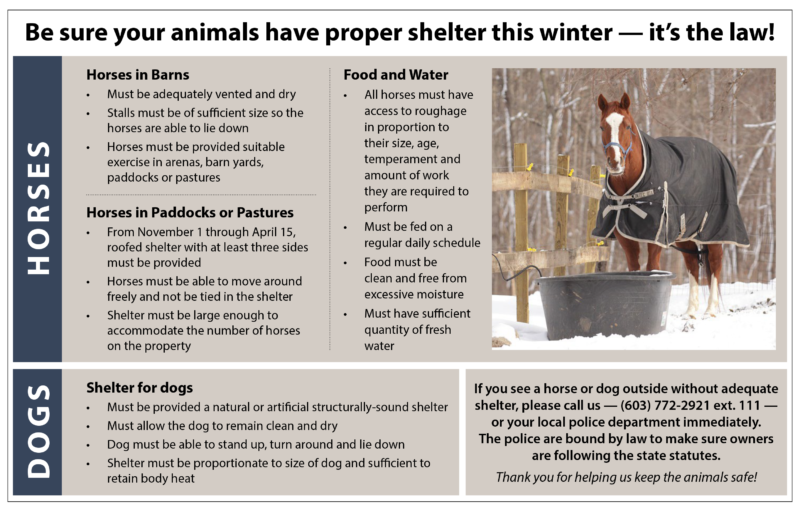
Winter can be a beautiful time of year, it’s picturesque, the snow creates a winter wonderland, and the crisp cold air is invigorating. But it also presents very real dangers for our pets. Here are some things to consider for your pet during the colder months of the year.
- Baby, It’s Cold Outside: If you’re cold, then they’re cold. Shorten your walks in very cold weather, it protects both you and your dog. Keeping pets outdoors for any length of time is not very wise during these colder months. Pay attention to signs that your pet is feeling the chill.
- Name Your Poison: Prevent accidental poisoning. While anti-freeze is important during the winter for the functioning of your vehicle, it is deadly for animals. Even small amounts of antifreeze can kill. Make sure your pets don’t have access to medication bottles, household chemicals, potentially toxic foods such as onions, xylitol (birch sugar), and chocolate.
- Give Me Shelter: We don’t recommend keeping any pet outside for long periods of time, but if you are unable to keep your dog inside during cold weather, provide him/her with a warm, solid shelter against wind. Make sure that they have unlimited access to fresh, non-frozen water (by changing the water frequently or using a pet-safe, heated water bowl). The floor of the shelter should be off the ground (to minimize heat loss into the ground) and the bedding should be thick, dry and changed regularly to provide a warm, dry environment.

- Come On Feel The Noise: A warm vehicle engine can be an appealing heat source for outdoor and feral cats, but it’s deadly. Check underneath your car, bang on the hood, and honk the horn before starting the engine to encourage feline hitchhikers to abandon their roost under the hood. Here at the NHSPCA, we have two kitties who were rescued from under the hood of a Ford F-350…our place is much more comfortable.
- I Saw The Signs: If your pet is whining, shivering, seems anxious, slows down or stops moving, seems weak, or starts looking for warm places to burrow, get them back inside quickly because they are showing signs of hypothermia. Frostbite is harder to detect, and may not be fully recognized until a few days after the damage is done. If you suspect your pet has hypothermia or frostbite, consult your veterinarian immediately.
Enjoy the outdoors with your pet, just make sure you enjoy the indoors too!

